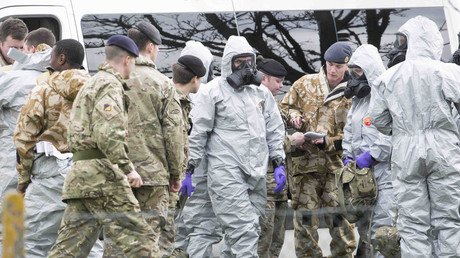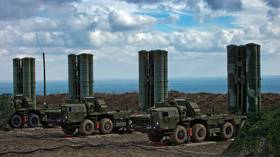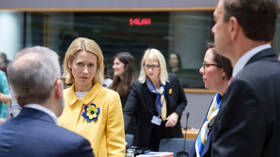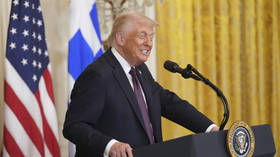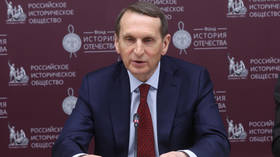OPCW corrects its own chief’s bizarre claim that ‘50-100 grams of Novichok’ were used on Skripals
The world’s chemical weapons watchdog has been forced to amend a sensational allegation by its own director-general, that “a quarter cup to a half cup of Novichok” – enough to kill thousands – was released to poison the Skripals.
In an interview with the New York Times, published on Thursday, Ahmet Uzumcu, who has led the Organization for the Prohibition of Chemical Weapons (OPCW) since 2009, said that 50-100 grams of the Soviet-developed nerve agent were used in the March 4 Salisbury incident involving the former double agent Sergei Skripal and his daughter.
The discussion of the exact quantity is not academic. According to the newspaper, the amount was “significantly larger than the amount that would be created in a laboratory for research purposes, meaning that it was almost certainly created for use as a weapon,” and tallied with UK “evidence” that Russia has been “stockpiling” Novichok.
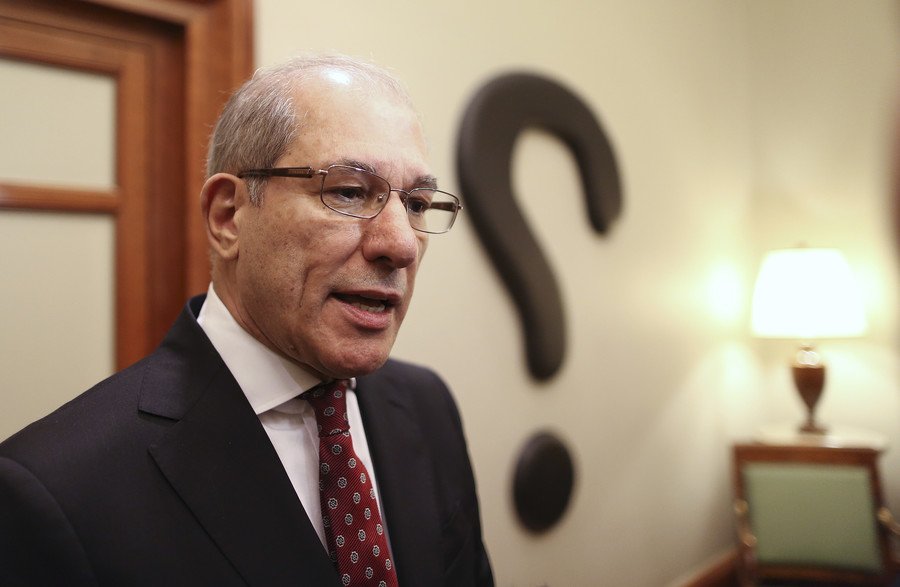
Uzumcu’s claim immediately raised questions from chemists and diplomats alike.
“According to expert estimations, 50-100g of a toxic agent such as the one Great Britain has been referring to would be enough to poison not just two people but everyone in the surrounding neighborhood. However, the two people in question managed to survive and recover, the British authorities say,” said Russian foreign ministry spokesperson Maria Zakharova.
Indeed, by Friday afternoon, the OPCW itself stepped in to put an end to the nonsensical speculation, with a denial that appeared to pretend that Uzumcu had never mentioned any quantities of Novichok, while also obliquely correcting him.
“The OPCW Spokesperson stated that the OPCW would not be able to estimate or determine the amount of the nerve agent that was used in Salisbury on 4 March 2018. The quantity should probably be characterised in milligrams,” wrote the agency.
In turn, the New York Times did not issue a correction, but instead deleted its original article wholesale, replacing it with a new text.
Even after its apparent resolution, the episode raises questions. Why did Uzumcu overestimate the quantity of Novichok by a factor of thousands? It did not appear that he merely misspoke, as the article also has him endorsing the theory that Western labs would have never produced it in such quantities. In fact, why did Uzumcu name any number at all, considering that his own agency says that they are unable to estimate the amount used, and he himself says he “does not know the precise amount.” Also unusual is the behavior of the New York Times, which neither stuck to the veracity of the original article, nor apologized for any supposed misquotes, but appears to have simply wished it away.
"It's easy to make a mistake in an interview, mistaking grams and milligrams, but there is more here than that," Charles Shoebridge, former UK intelligence officer, told RT. "The situation makes you wonder what the reason was the chief of the OPCW to say something that was - at least officially as we can see from the statement - untrue."
Think your friends would be interested? Share this story!
